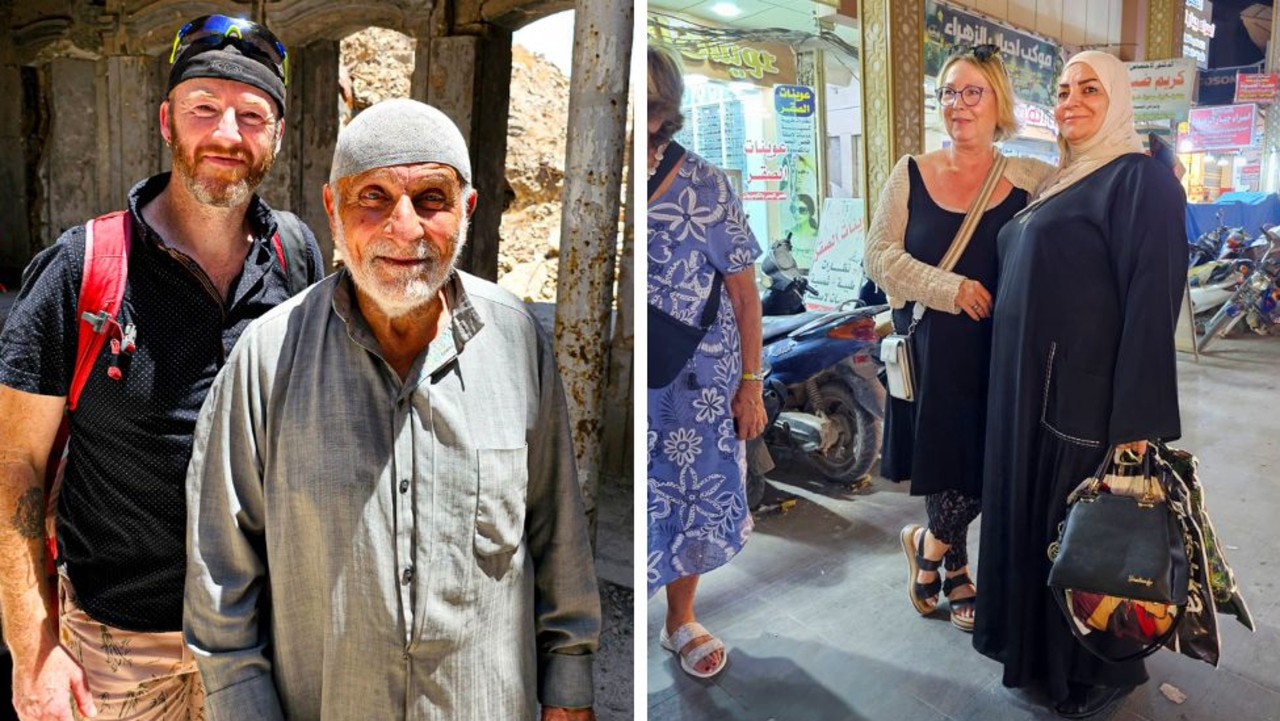Elusive snow leopards return to remote Afghanistan
“WHEN peace returns — and it will, as no war lasts forever — this region has great potential for eco-tourism.”
“PICTURESQUE” and “Afghanistan” are probably not two words you’d use together.
However, in a stunning and remote corner of the country, a unique conservation effort has helped bring the elusive snow leopard back from the brink of extinction, giving hope to one of the poorest and most isolated communities on Earth. The leopards range across the snowy mountains of a dozen countries in central and south Asia, but their numbers had declined in recent decades as hunters sought their spotted pelts and farmers killed them to protect livestock. Now they’re thriving, thanks to a seven-year program and a newly-declared national park. Scientists who have been tracking the shy leopards estimate there are up to 140 cats in the Wakhan National Park, established two years ago across one million square hectares. Stephane Ostrowski, a specialist with the New York-based Wildlife Conservation Society, says that’s a healthy and sustainable number, and indicates that other species like the Siberian ibex and golden marmot — the leopards’ main prey — are also doing well. His findings are the result of research carried out in one of the most hard-to-reach places on earth. The Wakhan corridor is nestled high in the Hindu Kush mountain range and cut off by snow for most of the year. The 15-year-old war with the Taliban rages 30km to the south, and the nearby borders with Tajikistan, Pakistan and China are usually closed. The snow leopards have benefited from conservation programs going back to 2009, when conservationists began building enclosed corrals with mesh roofs to protect the sheep, goats and cows that are the backbone of the local economy. It was the first step toward bringing modern conservation techniques to Wakhan, where the population of around 17,000 lives off of subsistence farming. In one of the poorest regions of one of the world’s poorest countries, the leopards had long been seen as a menace. “We receive reports from all of the provinces where hunting is going on illegally, whether it is because of poverty, whether it is for hobby, whether it is for selling it at a higher price in the market,” said Mostapha Zaher, director general of the National Environment Protection Agency. But back in Wakhan, the conservation efforts appear to be catching on. At Qala-i-Panja High School, where students say they’ve never heard of the internet, they’ve embraced modern notions of wildlife preservation. A snow leopard cub stares down from a poster affixed to the otherwise bare walls. “Since the ban on hunting was introduced, the numbers of wild animals are increasing here and that is attracting foreign tourists,” said Simah, a 17-year-old who, like many Afghans, has no surname. “That can be good for the economy of Afghanistan.” The snow leopard is the national park’s star attraction, even if most visitors are unlikely to see one. Only around 100 visitors reach Wakhan every year, most entering from Tajikistan during the summer months. Wakhan’s poverty and isolation has insulated it from decades of war, but has also deterred all but the most adventurous travellers. Frenchman Jocelyn Guitton, an EU diplomat, arrived in August with plans to trek to the corridor’s northeast and visit Kyrgyz nomads. He allows that it’s “off the beaten track,” but says he hopes tourism can bring “visibility and good practices” to the region. Zaher hopes that Wakhan can one day rival Afghanistan’s only other national park, in the central Bamiyan province, where crystal-blue lakes attracts thousands of tourists each year. “When peace returns to Afghanistan — and it will, as no war lasts forever — Wakhan has great potential for eco-tourism, for people who are interested in archeology, anthropology, researchers interested in Afghanistan, people interested in glacial melt, mountaineering, the environment.”



